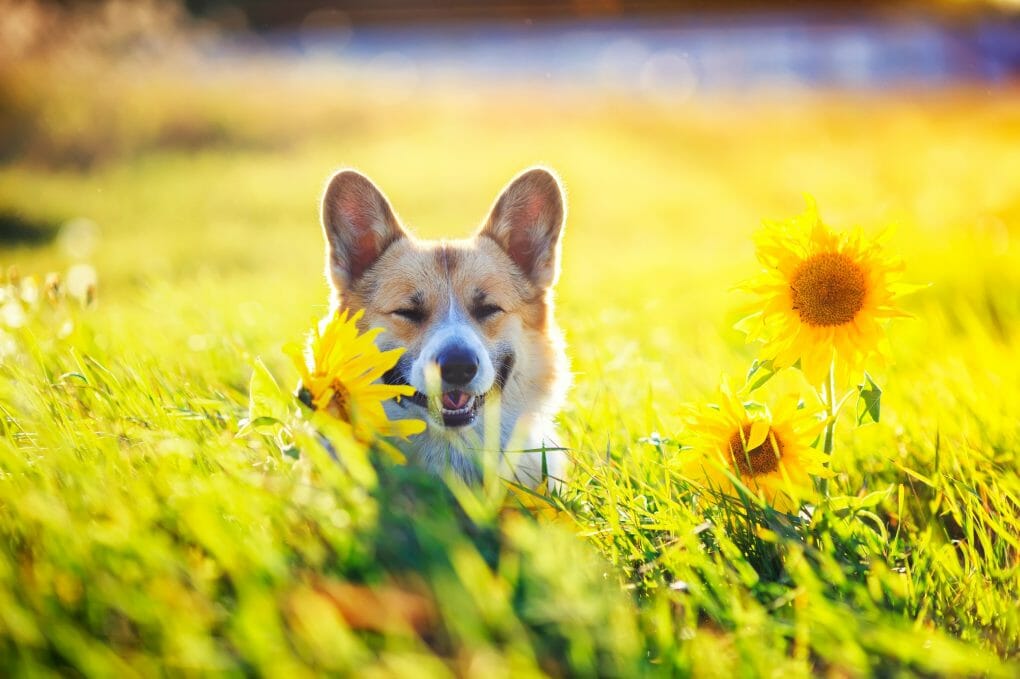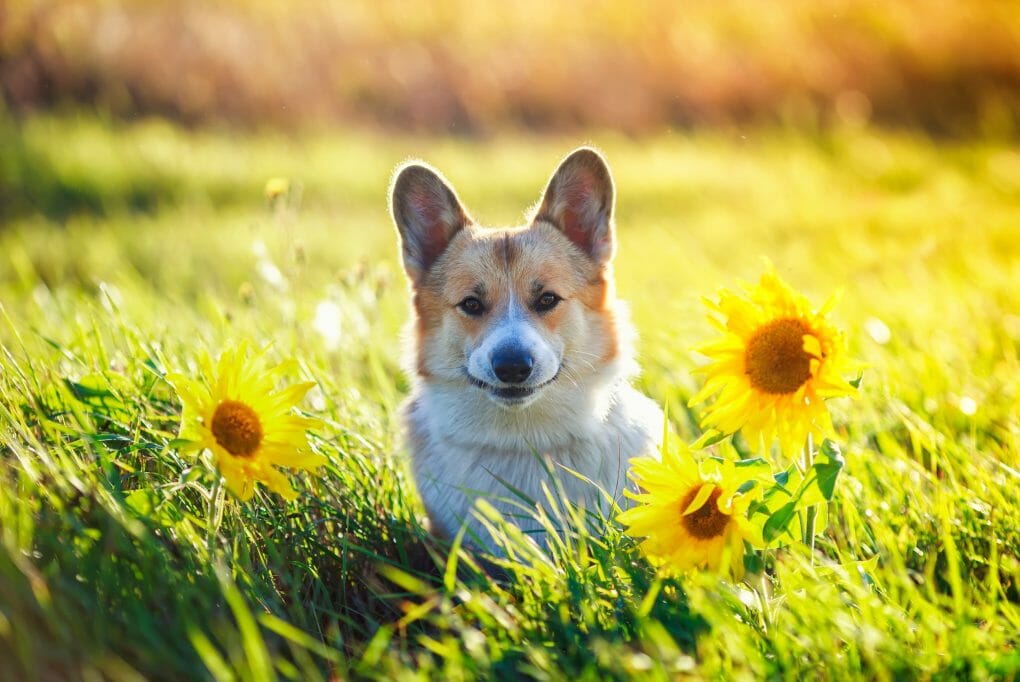Are Sunflowers Toxic to Dogs? The Truth About This Popular Flower
According to the American Society for the Prevention of Cruelty to Animals, sunflowers are safe for dogs. They contain a nutritional value for your pet. There’s a reason sunflower seeds are so prevalent in dog treats – sunflower seeds have many benefits. From the health benefits to the deliciousness and deliciousness factor, sunflower seeds undeniably benefit your pup’s health. While there’s no need to worry about sunflower seeds being toxic to dogs, keeping them out of reach and off the floor is always the best practice. Sesame seeds can also be a choking hazard for small dogs, so ensure they don’t get access.
Table of Contents
Why Do Dogs Eat Sunflowers?

Dogs eat sunflowers for several reasons. Sunflowers are high in protein and other nutrients that can be beneficial to dogs, and they also contain several essential oils that may be pleasing to dogs’ noses. Some of the other reasons that dogs may eat sunflowers include:
- To satisfy their hunger: Sunflowers are a good source of energy and nutrients, so if a dog is hungry, it may eat them to satisfy its hunger.
- To relieve boredom or boredom-related stress: Many dogs enjoy playing fetch, chasing toys, or going for walks, but sometimes these activities can be tedious or stressful. Eating sunflower seeds alleviates these feelings of boredom and provides a fun and entertaining diversion for the dog.
- To improve their mood: Some studies have shown that consuming sunflower seeds may help to improve a dog’s mood and overall disposition. This may be because sunflower seeds are high in fiber and other nutrients that promote well-being.
Health Benefits of Feeding Your Dog Sunflower Seeds
Sunflower seeds are high in fiber and protein, which can help regulate digestion. Sunflower seeds also provide your dog with vitamin E, which can support the immune system. Sunflower seeds can help keep your dog’s coat healthy and plaque-free. Moreover, regularly feeding your dog sunflower seeds can help promote a healthy weight and dental hygiene.
Sunflower seeds are a source of vitamin D, which can support the health of your dog’s teeth and bones. They also provide your dog with vitamin B2, which can aid in forming red blood cells and improve the function of the nervous system. Sunflower seeds are low in fats but high in dietary minerals, including iron, zinc, and magnesium. These nutrients can help support overall health and well-being.
Therefore, feeding your dog sunflower seeds regularly provides many health benefits.
Are Sunflower Stalks and Leaves Poisonous to Dogs?

Sunflower petals and leaves are not poisonous but can still cause skin irritations. If your dog chews on sunflower stalks or leaves, it may become sick. If you have a dog allergic to any plant, please do not let them near a sunflower plant. If your dog has ever had an adverse reaction to any flower, consult your veterinarian before letting them near a sunflower plant.
Sunflowers are famous for their bright yellow flowers and bright green leaves. However, sunflowers are toxic to dogs if ingested, so don’t let your dog eat the plants or the seeds. Keep sunflower plants away from your dog and closely monitor the animal’s health if it is playing with the plant or eating the seeds.
Begin by taking action when you see signs of sunflower toxicity, such as vomiting, diarrhea, irritated stomach, seizures, lethargy, or altered mental status. If these signs persist or worsen, seek medical attention immediately.
How To Feed My Dog with Sunflower Seeds?
Although dog food should always be the primary source of nutrition for pets, sunflower seeds can be given as a treat because of their potential health advantages. To offer sunflower seeds to your dog as a special treat, follow these guidelines:
Purchase Unsalted Seed
Sunflower seeds without salt can be given sparingly to dogs. Avoid salted sunflower seeds; too much salt might cause your dog’s blood pressure to rise and negatively affect its health.
Avoid Using Seasonings
Artificial tastes like onion, honey mustard, and others can be hazardous to dogs and disturb their digestive systems. Stick to simple, unsalted seeds wherever possible. (This also applies to pumpkin seeds, which have a high calcium content and are healthy when eaten raw.
Remove the Shells
Some dog owners like to give their dogs the whole sunflower seed as a treat, which is not recommended. Sunflower seeds can be challenging for dogs to digest if they contain a shell. Remove the shells before giving them to your pet.
Only sunflower kernels should be given to dogs by their owners. The seed shells’ exterior layers may present a choking risk.
Provide a Very Small Amount

Sunflower seed food can be safely given to dogs in moderation as a snack or occasional treat, but don’t overdo it. Feeding too many seeds at one time can upset your dog’s stomach and cause diarrhea. Just a dozen sunflower seeds should be given to your dog, and they should be spread out over a few minutes so that your dog can enjoy them rather than eat them all at once.
Keep An Eye On Any Responses
For your dog, plain sunflower seeds in moderation should be acceptable, but you should keep an eye on your dog’s behavior and stools after giving him this treat, especially the first time. Dogs with a history of vomiting or diarrhea should be watched very closely after eating seeds.
When Are Sunflower Seeds Bad for Dogs?
Sunflower seeds can harm dogs if fed in large quantities or as a regular snack. Feeding sunflower seeds in moderation is safe for most, but some dog owners may want to heed the warnings and watch their dog’s behavior closely after giving them this treat.
Eating sunflower seeds can cause vomiting, diarrhea, and other gastrointestinal problems in dogs. Consumption of small amounts of sunflower seeds is not harmful to dogs, but some sunflowers, such as the Indian sunflower, are safe for dogs to eat. If your dog is eating a lot of sunflower seeds, it is best to consult a veterinarian. Additionally, feed your dog a healthy diet and give it plenty of water to stay hydrated.
